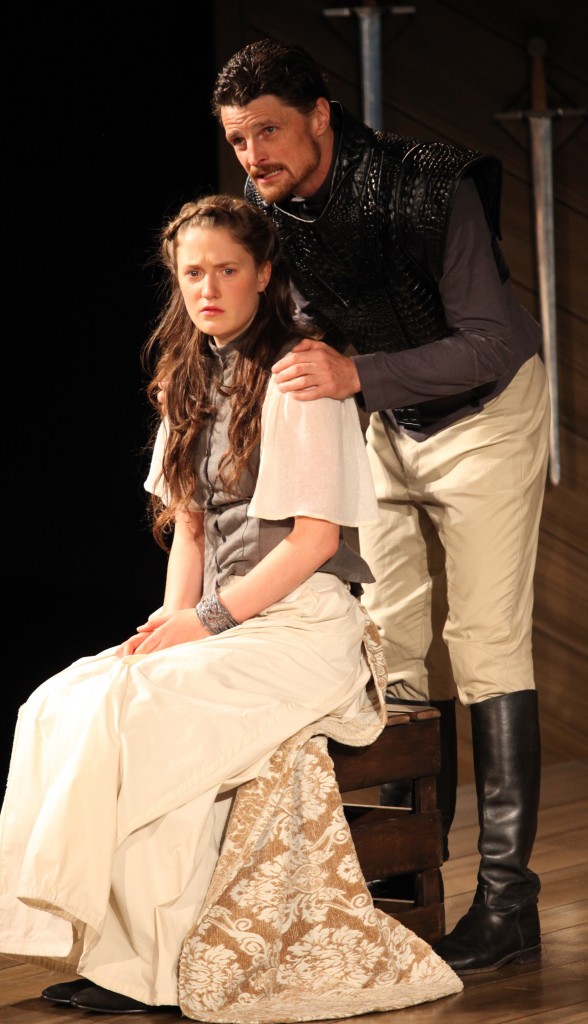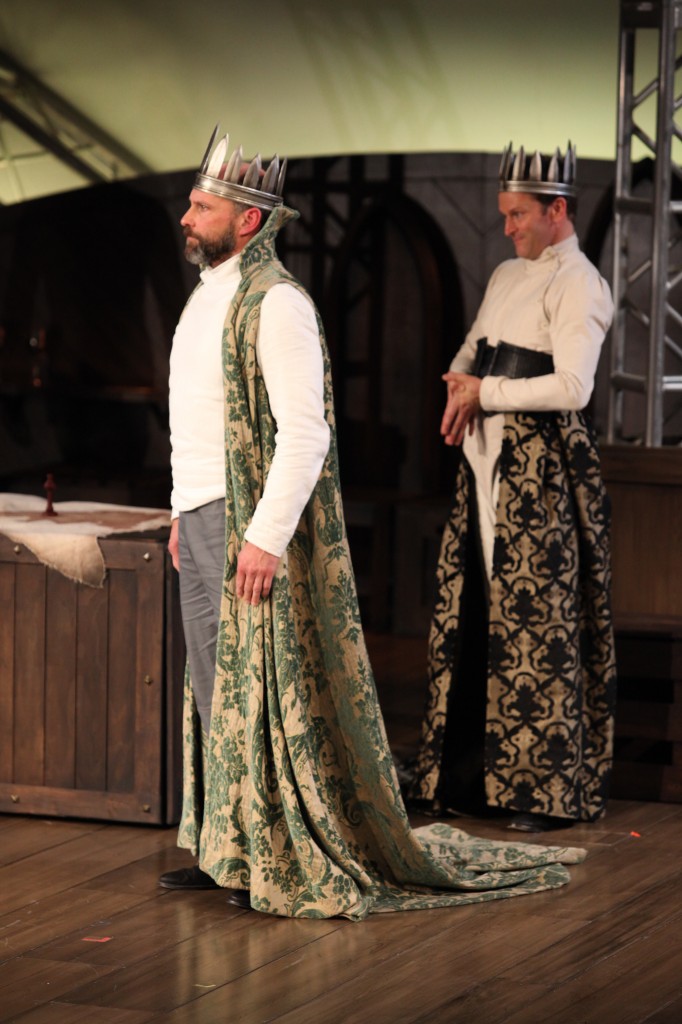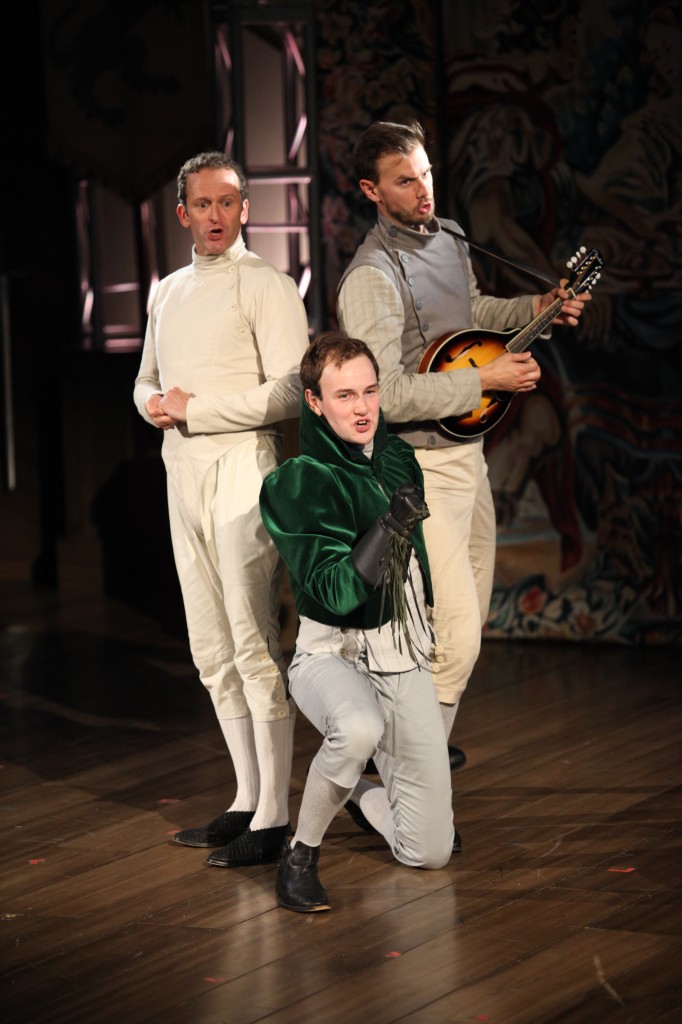
Credit: David Blue
At Bard on the Beach until September 17, 2014
604-739-0559/bardonthebeach.org
Posted July 15, 2014
Usually I’m not concerned about whether a play attributed to Shakespeare was actually written by Shakespeare. Cymbeline, however, does make one wonder. “A tragedy gone right” is how some have described it – although all that’s tragic about it is its potential for things to go wrong. But they don’t; they go very, very right.
Under the direction of Anita Rochon, making her Bard debut, not only is this not a tragedy (although it is subtitled The Tragedy of Cymbeline) it is, at times, almost a farce. Rochon takes some two dozen Dramatis Personae and melts them down to seven making some very quick and very funny changes necessary. Anton Lipovetsky plays three roles: Cloten, the son of the Queen; Posthumus, husband to Imogen; and Arviragus, King Cymbeline’s son. There are moments when two of these three characters are involved in the action at the same time. “Boys!” shouts Morgan (Shawn Macdonald), and Lipovetsky darts across the stage, dons a fur wrap, and is suddenly Morgan’s hunter/gatherer son – although not really, because he’s actually the long lost son of Cymbeline. You get the idea. It’s complicated. Read the synopsis.
And although the play is titled Cymbeline, arguably Imogen, his daughter (Rachel Cairns) and Posthumus, her husband, are, like Romeo and Juliet or Antony and Cleopatra, the central characters. No one much cares about King Cymbeline except that his fierce opposition to the marriage of Imogen and Posthumus sets the story in motion. Posthumus, with promises to return for Imogen, goes into exile in Italy where he meets Iachimo (Bob Frazer), a villain to rival Iago in Othello.

Credit: David Blue
Young Rochon, co-director of The Chop – a fresh, innovative theatre company in town – show’s her chops with inventive staging: all the performers are on stage all the time; when not directly involved, they sit in shadows upstage; a fully visible trunk holds the various costume changes – a wrap, a skirt, a cap – all of which are put on in full view. The performers double – or triple – as both characters and musicians with a mandolin, an accordion and drums. In addition to playing four roles, Benjamin Elliott composed the music, inspired by classical music, bluegrass, Baroque, pop and bird song.
In Equivocation, Judith (Rachel Cairns) might have commented to Shagspeare, her father, that women disguised as boys are audience pleasers and might get him out of his momentary writer’s block. Indeed, Shakespeare does it again here in Cymbeline with Imogen disguised as Fidele. Naturally, she bumps into Posthumus and you can imagine how it all ends.
There are certainly reasons why Cymbeline is seldom studied, read or produced: it’s uneven. And although forgiveness is a major theme, it doesn’t resonate as deeply as, for example, it does in The Tempest. King Cymbeline (Gerry Mackay) is simply not a character writ large enough to resound with any intensity.

Credit: David Blue
But this production gives a lot of scope to the performers – most notably Rachel Cairns whose Imogen is full of longing for her exiled husband then furious at his disdain for her after Iachimo dupes Posthumus into believing she has deceived her young husband. Outstanding once again is Bob Frazer whose wiliness in Imogen’s bedroom is such awful fun to watch as he creeps up on her, stealing the ring given to her by Posthumus and spotting a mole under her exposed left breast – a detail that will convince Posthumus of his wife’s infidelity.
Shawn Macdonald’s Queen is terrifically over the top and leaves absolutely no doubt as to which character he is at any given moment. Lipovetsky shines most brightly as the clothing-absorbed, goofy but dangerous Cloten.
Shakespeare was, apparently, experimenting with form in Cymbeline. The result is a bit of a mixed bag – probably what he was looking for – but not entirely satisfying except in terms of this Bard production that is clever, funny and handsome.

